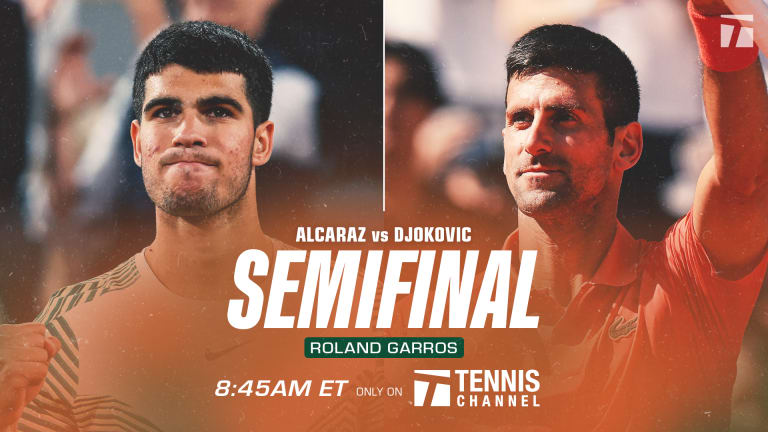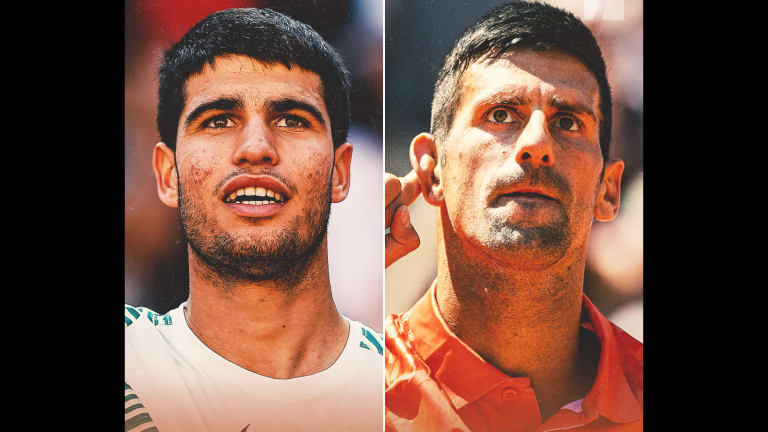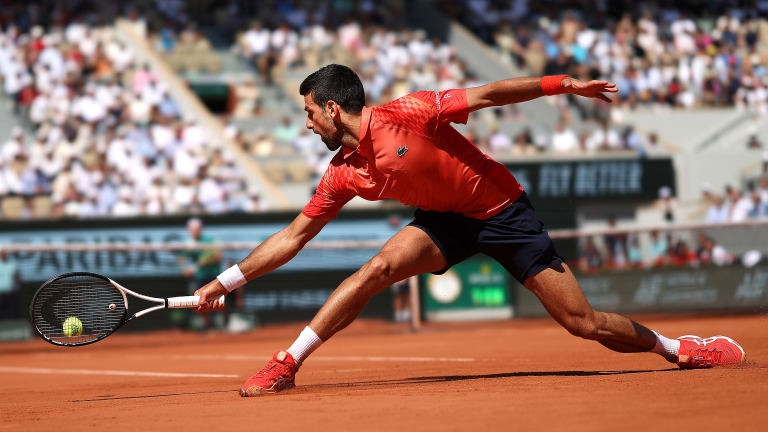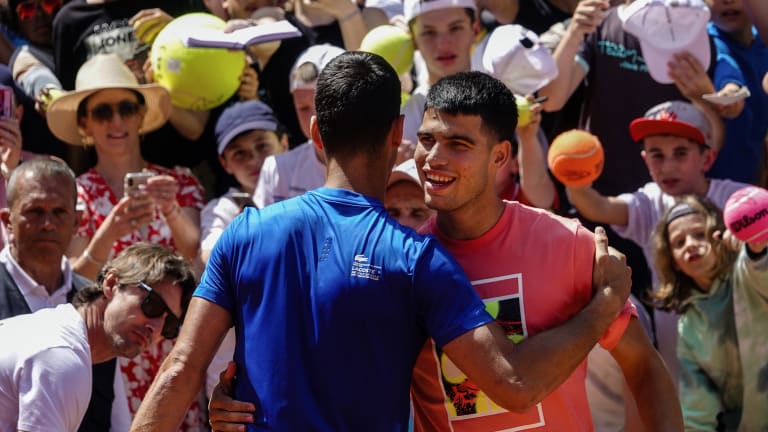In this edition of The Rally, Joel and Steve talk about Tuesday’s impressive wins by Carlos Alcaraz and Novak Djokovic, and break down their momentous semifinal showdown on Friday.
Hi Steve,
Well, well, we indeed have the mouth-watering Roland Garros semifinal everyone considered when the draw was made: Carlos Alcaraz versus Novak Djokovic, set to take place Friday.
One notable news tidbit heading into this match is that each player has arrived at this stage in fine shape—seasoned, but hardly scarred. And while Alcaraz has competed at a high level all through the clay-court season, it’s been great to see Djokovic’s quality of tennis increasing after a few stumbles in the spring.
Djokovic was particularly impressive in the last three sets of his quarterfinal versus Karen Khachanov. The end of the second set once again revealed Djokovic’s unsurpassed excellence in tiebreakers. On the other hand, Alcaraz found himself playing just well enough in the third-set tiebreaker of his match against Stefano Tsitsipas to wrap it up in straight sets. Perhaps tiebreaker management will play a key role come Friday.
Many factors make this match rich with intrigue. New No. 1 versus longstanding No. 1. The 20-year-old Alcaraz seeks a credibility-enhancing second Grand Slam singles title. The 36-year-old Djokovic wants a record 23rd.
The two have only played each other once, Alcaraz beating Djokovic in the semis of Madrid 13 months ago. So technically, we’ve been waiting more than a year for their next match. And how great that it’s happening at a major.




